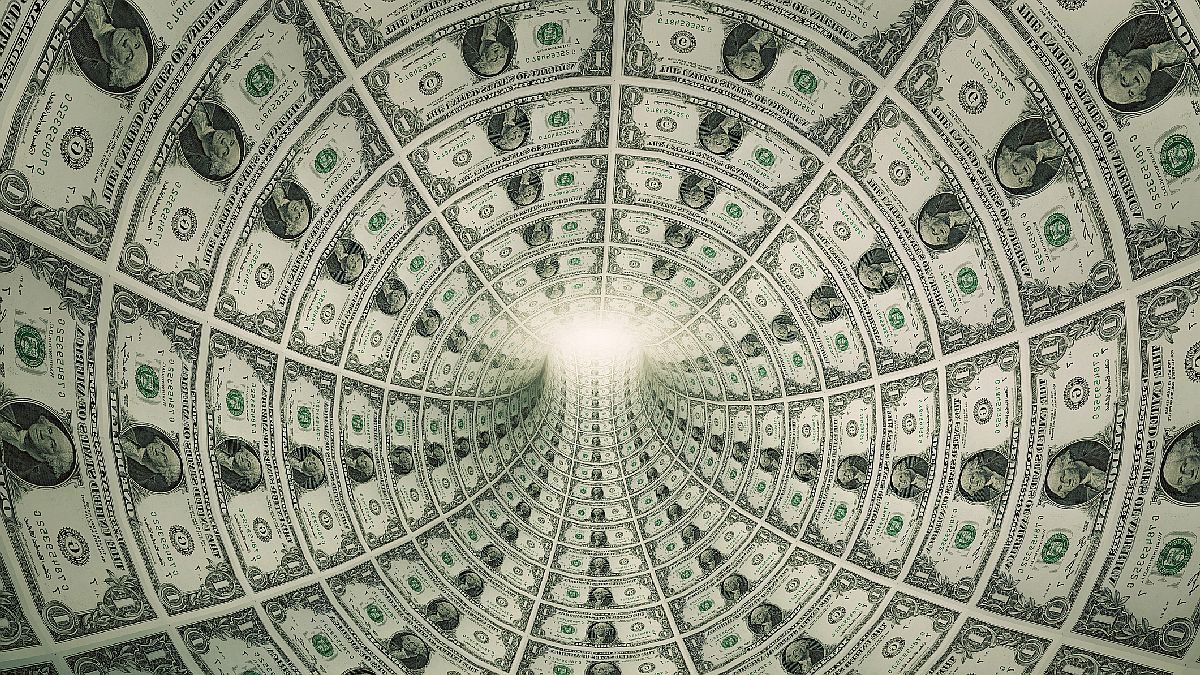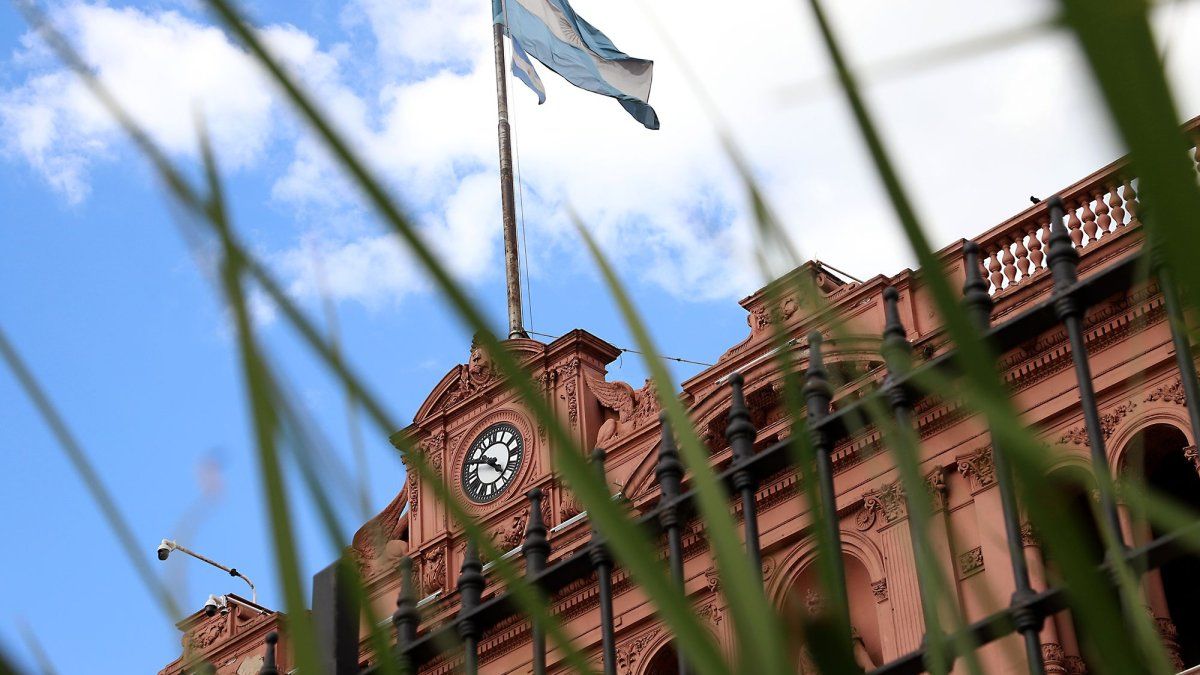Mid January 2017. “You have to explain that we are doing well.” “Let’s be closer to the people, let’s listen, let’s explain, let’s be patient, let’s be austere” (Macri to his ministers, back from his long vacation and, before leaving on a month-long tour of Europe). The international tour that the president was beginning implied that, of 40 days, it would be only 5 days in the execution of the government.
Inflation had risen and future inflation expectations, too. The inconsistency of the practices and the story, the hesitation in the face of pressure from the red circle that wanted blood, the limitations of the staff, the new inmates, the intensification of economic and social danger, the eventual consequences of an outcome of the Lebacs, the indebtedness growth and the persistence of the cheap dollar, made the polls discourage President Macri.
The deterioration of the social and political situation was not the continuation of the 2015 story. Cristina Fernández de Kirchner had said goodbye amid popular uproar, with very low indebtedness, society as she had a job and had better pay. Retirees with free medicines and citizen security in the face of the “commercial revivals” of the Macri period.
At this point, we emphasize the pitfall of the inability to solve economic problems such as inflation. Citizens discounted that the Macri government would end inflation, not that it would boost it.
Peronism is an opposition force that, even defeated, is capable of stopping or conditioning labor reform policies that require congressional approval. Macri won, but he did not consolidate a legislative umbrella to do anything, and it was not possible to govern by decree all the time. The president was obliged to seek agreements, balances and collaboration, not only with the scattered Peronists, but with their own forces. Under these political circumstances, the context demanded a margin to implement unpopular policies. Did not exist, that’s why he lashed out at the unionists.
Marcos Peña and Duran Barba did not consider the fact that the CEOs in the government began to erode the ruling coalition itself. Among the PRO allies, there were already people saturated from the increases in Aranguren-ex Shell, Quintana, Lopetegui and Cabrera. The rise of the CEOs was not an event that we can isolate from the development of the precarious social situation. They had no idea about social issues.
Therefore, Macri’s loss of popularity was the product of the joint political-business process. No more no less. And also from the problems generated in the exercise of power that he left much to be desired, the marches and counter-marches ended up wearing down his credibility.
Andy Freyre’s advice: “rent the barbecue area, the grill, the barbecue and the armchair” to earn some extra money during the summer, Rabbi Bergman’s tree. The INAUGURATION OF Rodríguez Larreta of an alleged swimming pool in the Parque de los Niñosa synthetic rug on the floor that led to ridicule on the networks… all of this caused discontent “…They have become corrupted, they do abominable works. There is no one who does good…” (Psalm 14)
Since February, the social protests would once again demonstrate their power, little by little they would become the highest point of an eventual crisis. In this sense, the plot of political events could perhaps be understood as a consequence of the divorce between CEOs, society and economic agents. The decisions that were made no longer seemed to be accepted and believed by the voters who should legitimize them.
Third DAVOS Economic Forum
The pompous annual event began with ear slaps for President Macri in absentia, who would arrive from Russia later, empty-handed..
The course of half of the presidential term had already shown how the relationship of Argentina that “had returned to the world” with the rest of the countries was given. Asymmetric friendships with rich countries and progressive difficulties in terms of negative trade balances, evidenced a panorama of progressive opacity. In turn, it had already been verified how the financial aspect had taken on its own weight, installing indications of its potential capacity to hinder the future.
Consequently, it seemed that the change of government and the structural problems that Argentina presented (imbalances in the balance of payments and fiscal deficit), they would be closing the doors that an exultant Prat Gay had promised to open, when he announced the fascinating lifting of the “stocks” and the purification of the “militant fat”.
In reality, the country’s relationship with the rest of the world was increasingly unequal and less successful. By propping up the reprimarization of the economy together with the coordinated model of financial accumulation, the relationship of subordination was extended. Long-term planning did not exist and short-term planning was corrected every 24 hours, up to 50% of the goals. Productive investment did not arrive and therefore the sub-industrialization process that had been achieved during the previous government began to fade. The increased weight of the growing debt service burden on the national accounts, the increase in financial speculation and the loss of sovereignty in decisions regarding sensitive issues, were obscene.
all those stresses than in other conservative governments they were deposited on the Minister of Economy, who led the domestic economic policy and foreign economic policy, were deposited in Marcos Peña, the head of the cabinet of ministers.
With his delegation, the president and his right-hand man were assuming the responsibility of being the potential managers of a major macroeconomic shock, or delaying it until the next president arrived. Christine Lagarde-IMF- warned in Davos, on Tuesday, January 23, 2018-about the dangerous indebtedness of “some countries”(perceived as risk of default, its technical expression is “risk of intertemporal fiscal insolvency”).
As indicated by the interest rates we paid on incessant borrowing, The expressions of the Managing Director of the IMF came to add new doubts.
President Macri, endowed with the full support of the international establishment, corporate-media support, and guided by his ambition, would be about to start making his biggest miscalculations. The brooding and hidden fact that Duran Barba would step asideincreased the guesswork.
The spirit of corporate and political collaboration would not last very long-they had already been given almost everything they asked for in return. Although the success of Cambiemos in the large cities of certain provinces forged a temporary consolidation, this would not translate into a convergence of future blame. The lack of convergence was beginning to be noticeable, and could compromise some leaders and forces, causing serious conflicts.
After Duran Barba’s tiptoe start, some of the vulnerabilities were exposed. Although Duran Barba added electoral achievements and the recent situation seemed to be favorable after the October elections, Macri weakened in the polls by December 2017, and a phantom contingent of recession was returning unleashed by the interest rate and the incessant increase in tariffs. The government did not solve any fundamental problem. Weight issues remained unanswered.
In this framework of uncertainty, Macri’s third Davos took place after the disappointing performance of Prat Gay. More “trial and error” was tried, and that system that almost always gave “error”, would hasten political, economic and social times.
Graduate Professor UBA and Masters in private universities. Master in International Economic Policy, Doctor in Political Science, author of 6 books. @PabloTigani
Source: Ambito
David William is a talented author who has made a name for himself in the world of writing. He is a professional author who writes on a wide range of topics, from general interest to opinion news. David is currently working as a writer at 24 hours worlds where he brings his unique perspective and in-depth research to his articles, making them both informative and engaging.




